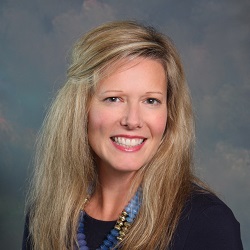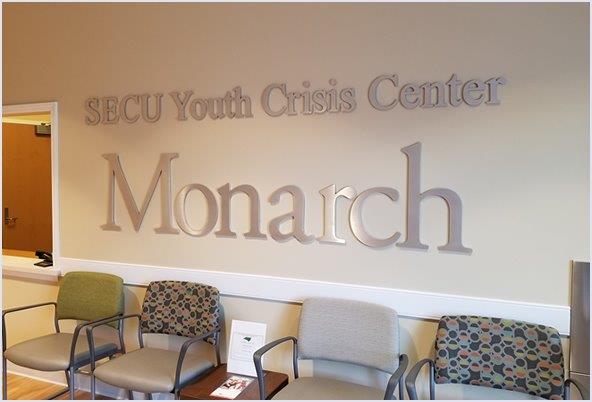Top-Level Takeaways
-
The SECU Foundation of State Employees Credit Union in North Carolina supports philanthropic efforts in housing, education, health care, and human services.
-
Core funding for the foundation comes from a monthly $1 contribution from more than 1.4 million checking account holders.
-
The foundation vets more than 100 requests every year through a lens of impact and a process of elimination that extends from the branch to the board.
CU QUICK FACTS
State Employees Credit Union
Data as of 09.30.19
HQ: Raleigh, NC
ASSETS: $40.9B
MEMBERS: 2,455,773
BRANCHES: 272
12-MO SHARE GROWTH: 5.2%
12-MO LOAN GROWTH: 6.4%
ROA: 0.58%
With nearly 2.5 million members in a state with 10.4 million people, State Employees Credit Union ($40.1B, Raleigh, NC) has a considerable impact on North Carolinians as a provider of affordable, responsible financial services. But the nation s second-largest credit union (and largest state charter) adds to that impact via grant funding through its SECU Foundation.
The bulk of the funding for the SECU Foundation comes from a monthly $1 donation taken from members checking accounts. That donation began as a monthly maintenance fee on all checking accounts, but under then president and CEO Jim Blaine, senior management seized the opportunity to create a foundation in 2004 to address the requests for support and sponsorships that come in across the credit union s sprawling branch network.
Today, members may opt-out of the donation, but the vast majority of SECU s 1.4 million checking account holders choose to contribute.
We have more than 99% participation, says Jama Campbell, the former SECU branching executive who became the foundation s executive director and its first full-time employee four years ago.
That participation results in approximately $16 million a year in income to support the foundation s work. And since its founding in 2004, the SECU Foundation has distributed $169 million in grants in four funding areas education, housing, health care, and human services and in all 100 counties in North Carolina. The foundation fields more than 100 funding inquiries a year and works for geographic and mission balance.
We re upfront about what we re looking for, Campbell says. We want high-impact projects that directly support the SECU membership. There s frequently a tie-in with state agencies and departments and universities, and we work to spread our impact across North Carolina. We look at the map constantly. That s always on our minds.
The Power of a Dollar is the 2019 version of the SECU Foundation s annual report. Click here to download it.
Giving Back At Scale
The foundation also serves as tangible evidence of the credit union s commitment to be a good corporate citizen.

Jama Campbell, Executive Director, SECU Foundation
Through the foundation, we can pool our resources to tackle challenges we consider beyond the scope of the credit union, Campbell says.
That reflects in the size of grants, typically in the millions of dollars, and in scope of the programs. For example, the foundation supports a credit line, currently approximately $7 million, with the state housing authority to help that agency construct affordable housing.
The foundation has also partnered with Habitat for Humanity statewide, instead of working with dozens of individual chapters, to finance at least one new home in each of the state s 100 counties. The foundation has committed about $11 million to Habitat in the past five years.
Teacher housing is another longtime initiative for the foundation. In five projects, local developers used interest-free, 15-year notes to build affordable residences primarily for young educators.
On the health care front, the foundation has funded cancer centers in Asheville in North Carolina s Blue Ridge Mountains and New Bern on the coast so people don t have to travel far from home for critical care, Campbell says.
The foundation contributes millions of dollars every year toward education, too, through a diverse array of scholarships and vocational and career programs.
Regardless of the field it supports, each grant is intended to build capacity for recipients individuals as well as organizations to create access to services and to improve lives.
Building Capacity Among Budding Projects
Foundation Funding Areas
The SECU Foundation currently focuses on four funding areas. They are:
- EDUCATION: Supporting projects that benefit public schools, students and teachers, venues that provide experiential learning such as museums, and other educational mediums such as public television and learning centers.
- HOUSING: Funding partner organizations through grants and loans to provide supportive, affordable housing opportunities for North Carolina residents whose needs are not otherwise met by the local market.
- HEALTH CARE: Supporting projects that provide direct or supportive services for physical and mental health.
- HUMAN SERVICES: Focusing on prevention and remediation of problems with a commitment to improving the overall quality of life for individuals and communities and supporting the needs of state employees and their families.
Source: The Power of a Dollar (SECU Foundation annual report)
Another thing each project has in common: They re never fully funded by the foundation.
We collaborate, Campbell says. We want to see local or regional support. We want to see other commitments, even if we re the largest.
And, not all grants are large. The foundation also has a capacity grant program. Those $40,000 awards help recipient organizations such as a transitional housing center in Jacksonville thoroughly assess their own strengths and weaknesses and build infrastructure with an eye toward coming back to the foundation for larger grants when they re ready to scale up their work.
Capacity grants are especially important in rural areas across the state, where fundraising is difficult for organizations, especially those just getting started, Campbell says. We hear from many wonderful groups with great ideas, and this is a way we can look at them carefully, decide which ones have a real chance to succeed, and help them grow and build. Hopefully, then, they ll be able to come back to us for that next step.
That means keeping up communication with the foundation and its staff as well as with other SECU leaders. Incidentally, communication is a key part of the grant application process.
Potential grant recipients complete a Letter of Interest to initiate formal grant consideration from the SECU Foundation. The letter outlines grant criteria and application requirements, among other elements. Click here to see it.
An Intentional Decision-Making Approach
Potential recipients are instructed to submit a letter of intent to the foundation. About 100 do each year. The foundation Campbell and a staff of three review each one, often traveling around the state to meet with applicants. If the staff determines the idea fits the foundation s mission and priorities, that request goes to the appropriate local branch management and individual advisory board.
SECU has a well-established network of branch advisory boards comprising members at each of its 272 brick-and-mortar locations. Read more about that on CreditUnions.com.
Requests that pass muster at the local level go to the foundation board. That panel includes all 11 SECU corporate board members and up to five additional directors from the outside.
The corporate board controls the foundation, but the foundation decides on grants, Campbell says.
Applicants that make it through several layers of review but are ultimately turned down still receive some assistance in the form of support for the next request. The foundation will work with them to help them improve their approach for the next time around.
A couple years later, they can come to us with a project and application that hopefully fits, Campbell says.
Campbell and her staff also advise applicants about other philanthropic organizations that might be a better fit.
We do a lot of counseling to help people better understand the philanthropic environment in North Carolina and who to go to, the foundation director says.

The SECU Daily Planet at Raleigh s North Carolina Museum of Natural Sciences is a three-story globe billed as the largest of its kind in the world. It contains a 42-foot-tall screen as the centerpiece of a multi-media exhibit of the world s wonders.
Spreading The Word And The Wealth
The work the SECU Foundation is doing is important, but so, too, is getting out the word about that work. SECU s member education department takes care of public relations outreach from the main office. The branch advisory network also helps spread the word.
In scholarships alone, we give out more than 430 new ones every year, Campbell says. Our advisory board members go to each and every one of those graduations. We work hard to make sure we re out in the community at all levels, representing SECU when we award grants, loans, and scholarships.
Branding buildings with the credit union s name is another part of the strategy to demonstrate the impact the credit union and its foundation have in the state.
We re careful about that, Campbell says. We want to make sure they reflect our brand in the most positive and impactful way.

The 16-bed SECU Youth Crisis Center in Charlotte is the state s first such facility for children ages 6 to 17 in urgent need of mental health care.
The SECU name appears on cancer centers, hospices, family houses at hospitals, autism clinics, and most recently a youth crisis center in Charlotte.
The center helps children with mental crises who have no other place to turn, Campbell says.
Charlotte has the state s highest suicide rate among adolescents. This is a way we can impact that.
Impact, however, can be difficult to measure. Sometimes it s best demonstrated in the stories people tell. Like in the email Campbell received from a member whose mother passed away in a SECU hospice. The email described how the mother was able to transition in the care of compassionate, caring, professional people. The experience made a difference in the lives of the mother, the letter writer, and the family.
To me, the most significant projects we fund are those that support people at the most difficult times in their lives, Campbell says. Stories like that bring tears to my eyes.
This is the first of a two-part series on the SECU Foundation. In Part 2, learn more about the foundation s institutional structure and operations.